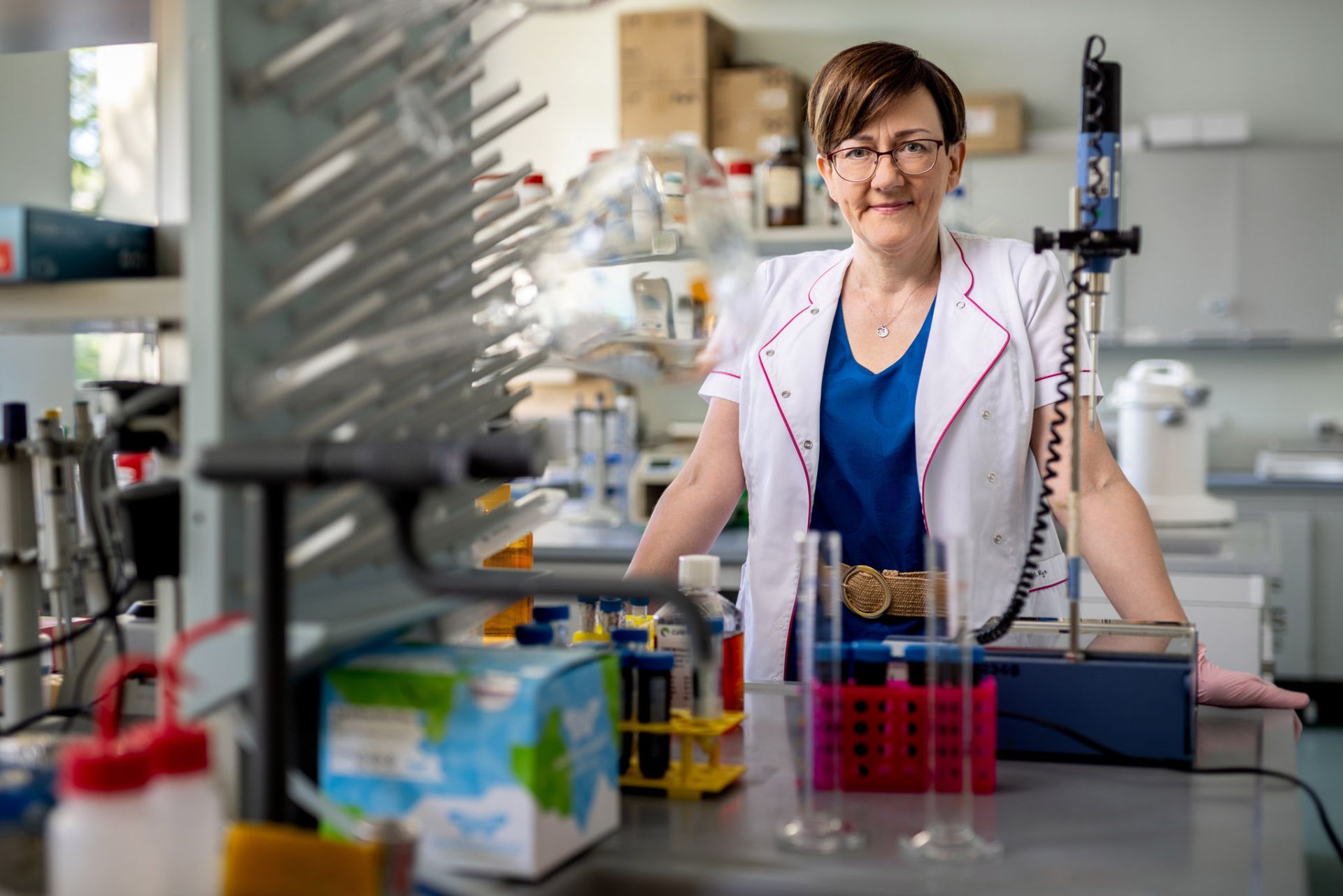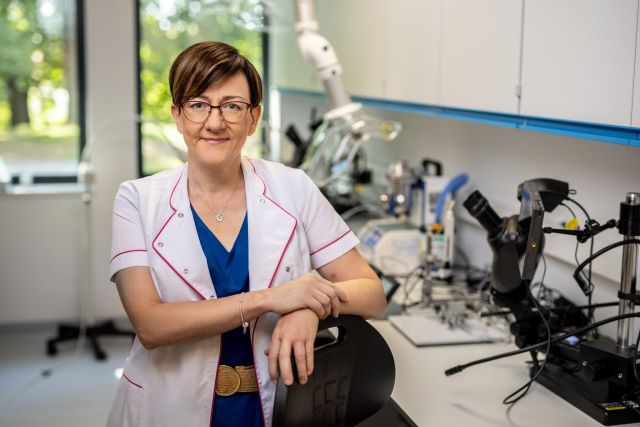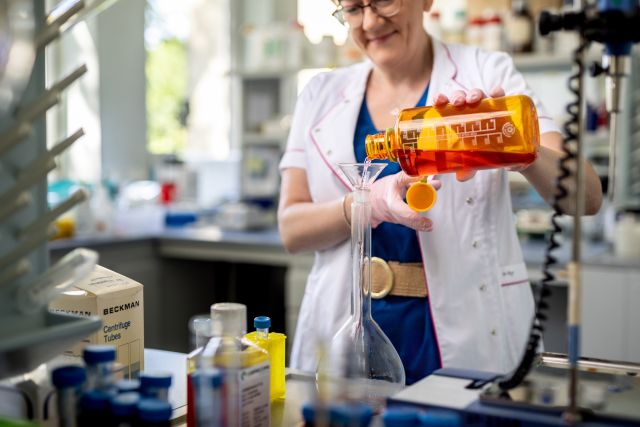Principal Investigator
:
dr hab. Anna Haduch
Maj Institute of Pharmacology Polish Academy of Sciences
Panel: NZ5
Funding scheme
: M-ERA
announced on
1 March 2023
Alzheimer’s disease is one of the toughest conundrums facing contemporary medicine. Affecting millions of people worldwide, this mysterious, progressive neurodegenerative process, which represents the most common cause of dementia in the world, still remains largely unexplained. Its main triggers are known to be amyloid beta (Aβ) peptides and abnormal (hyperphosphorylated) Tau proteins, which build up in the brain in the form of harmful plaques and gradually destroy precious neuronal structures, leading to the gradual loss of memory and cognitive function.
 dr hab. Anna Haduch, photo Łukasz Bera
Our innovative solution to the problem was to enlist an army of invisible guardians that could be sent into action to defend the brain against damage with surgical precision. This is the chief mission of ROSSCA, a project that attempts to harness the physics of nanotechnology for medicine in order to develop a safe and effective weapon against the menacing forces of Alzheimer’s disease.
dr hab. Anna Haduch, photo Łukasz Bera
Our innovative solution to the problem was to enlist an army of invisible guardians that could be sent into action to defend the brain against damage with surgical precision. This is the chief mission of ROSSCA, a project that attempts to harness the physics of nanotechnology for medicine in order to develop a safe and effective weapon against the menacing forces of Alzheimer’s disease.
At the centre of the story are nanozymes, or small nanomolecules that behave like specialised natural enzymes. We could picture them as minuscule slivers of intelligent material, activated by an external magnetic field, which can be deployed to wherever they are needed in order to neutralise dangerous reactive oxygen species (ROS) and mechanically break down harmful Aβ and Tau plaques. This creates an incredible opportunity to influence the biochemical equilibrium in the brain and help restore affected neurons to normal activity.
The project is built upon close cooperation within an international team of experts in various fields, including physics and materials science, biology, toxicology, pharmacology and neurobiology, who are working on the following four tasks:
1. Creating and controlling nanozymes: Scientists at the University of Zaragoza (UNIZAR) are developing nanozymes that mimic the activity of the natural defensive enzymes present in our body (such as SOD, GPx, CAT). In addition, they are also building a special portable magnetic field MNZ activator, which will be used for the precise activation of nanozymes at a selected site and time.
2. Safety first: Scientists at the National Institute of Biology (NIB) in Ljubljana are testing whether nanozymes are safe for human cells, using 3D models to get more accurate results and increase the odds that the new treatment will be safe and free from adverse side effects.
3. Test tube tests – in vitro testing: Scientists at the University of São Paulo (USP) are running experiments on cell line models of Alzheimer’s disease to study the impact of nanozymes on cell health, metabolism and the presence of key biomarkers in search for any signs of improvement.
4. Testing on live organisms: Scientists at the Institute of Pharmacology of the Polish Academy of Sciences (IF-PAN) inject rats showing symptoms like those of Alzheimer’s with nanozymes. They are using precise magnetic activation and intranasal administration methods to see whether they can stop the disease and improve the rats’ cognitive function.
Thanks to its interdisciplinary approach and cutting-edge technologies, ROSSCA is likely to turn a new chapter in the history of our fight against neurodegenerative conditions. Let’s imagine a future in which closely controlled nanozymes are able to slow down or even stop the progression of Alzheimer’s disease, restoring hope to patients and their families. Our groundbreaking research shows how far science has come and how much further it can still go if we work together to combine our passion and knowledge.
Project title: Zdalnie aktywowane nanozymy magnetyczne wyłapujące reaktywne formy tlenu w chorobie Alzheimera
dr hab. Anna Haduch
Dr hab. n. med. Anna Haduch, graduate of the Jagiellonian University, heads the Department of Pharmacokinetics and Drug Metabolism at the Institute of Pharmacology of the Polish Academy of Sciences in Kraków. She is passionate about studying the role of cytochrome P450 enzymes in the biotransformation of drugs and neural substrates in order to push the frontier of what we know about brain metabolism. Dr Haduch is the author of many publications in renowned scientific journals and an active member of the international research community, working on projects that might change the face of modern medicine.


